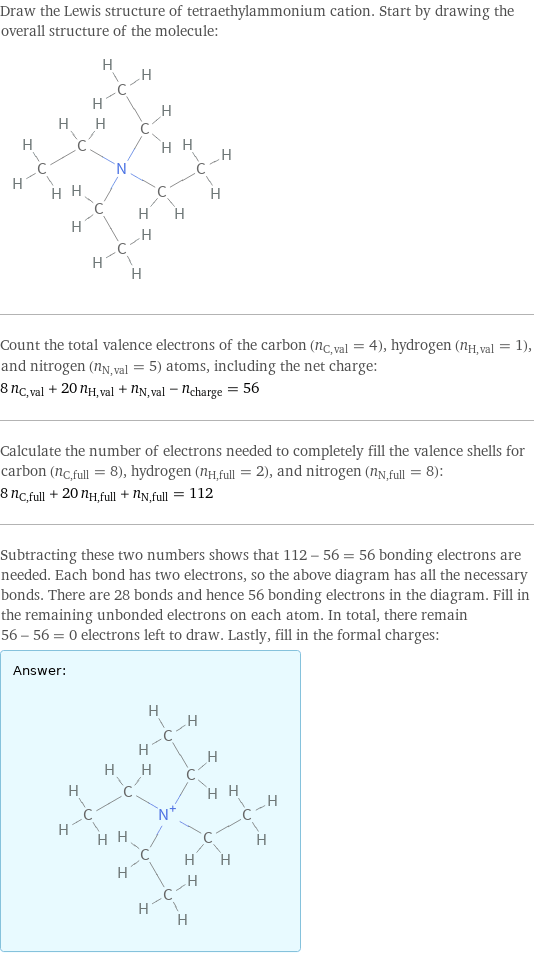Input interpretation

tetraethylammonium cation | structure diagram
Result

Draw the Lewis structure of tetraethylammonium cation. Start by drawing the overall structure of the molecule: Count the total valence electrons of the carbon (n_C, val = 4), hydrogen (n_H, val = 1), and nitrogen (n_N, val = 5) atoms, including the net charge: 8 n_C, val + 20 n_H, val + n_N, val - n_charge = 56 Calculate the number of electrons needed to completely fill the valence shells for carbon (n_C, full = 8), hydrogen (n_H, full = 2), and nitrogen (n_N, full = 8): 8 n_C, full + 20 n_H, full + n_N, full = 112 Subtracting these two numbers shows that 112 - 56 = 56 bonding electrons are needed. Each bond has two electrons, so the above diagram has all the necessary bonds. There are 28 bonds and hence 56 bonding electrons in the diagram. Fill in the remaining unbonded electrons on each atom. In total, there remain 56 - 56 = 0 electrons left to draw. Lastly, fill in the formal charges: Answer: | |